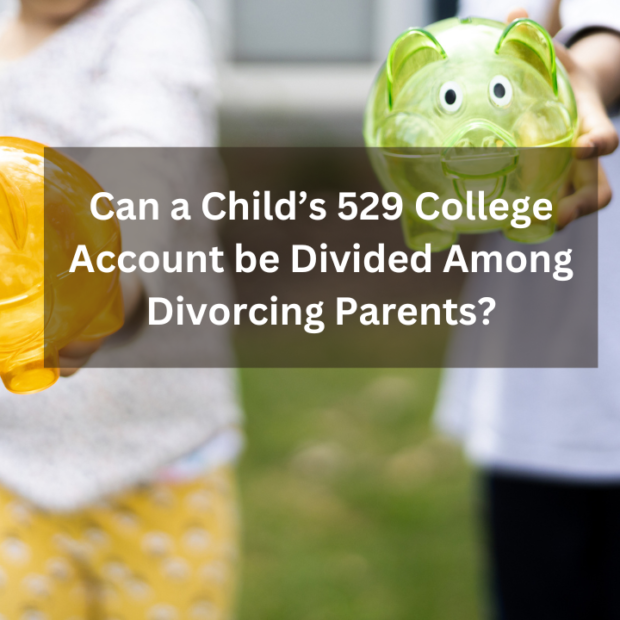Can a Child’s 529 College Account be Divided Among Divorcing Parents?
Given the exorbitant cost of higher education, many parents start investing into a 529 plan years before tuition payments are required. Should they get divorced, parents might believe that this college fund will be unaffected because both still are committed to financing their child’s education and the assets in the 529 belong to their son or daughter. However, this is not the case. In nearly every instance, one of the parents is the custodian of the account, with their child named as beneficiary.
Unless a contrary prenuptial or postnuptial agreement is in place, the assets in a 529 account are part of the marital estate and subject to equitable distribution by the court if a settlement cannot be reached by the divorcing spouses. Instead of putting the allocation of college funds in the judge’s hands, it is usually best for parents and children alike if an agreement is negotiated regarding treatment of the 529 account. The following are some of the potential options:
- Split the value into two accounts — One way for each parent to have equal control of the accumulated value in a 529 plan is to roll over half of the funds into a new account owned by the spouse who did not own the original account. Under this option, each parent can add funds to, and make distributions from, their own account.
- Make your co-parent contingent owner — If you choose to have multiple plans, it might be best for both you and your co-parent to make each other contingent owner on the accounts in the event that one parent dies before the funds are used.
- Execute an agreement on distribution — Withdrawing assets from a 529 that are not for educational purposes triggers a 10 percent penalty and tax liability on any growth. However, there are situations where a custodian takes money out due to financial hardship or some other reason. As part of your divorce, you might wish to halt contributions to the plan and agree that existing funds will be used for your child’s education before either parent is required to use personal funds for college expenses. From there, one or both parents can start an additional 529 plan.
- Provide account updates — Even though one parent owns a 529 account, the Appellate Division in Zuchowski v. Zuchowski recognized that the non-owner parent has an interest in it and required a New York mother to provide quarterly statements to her ex-husband despite the fact that the account was in her name.
Many parents spend hundreds of thousands of dollars on higher education costs for their children, so it is important to pay close attention to this issue during your divorce. At Bryan L. Salamone & Associates, P.C., we are the Long Island divorce leader because our lawyers identify creative solutions to complex challenges such as this. To discuss your situation with an experienced lawyer, please call 1.631.479.3839 or contact us online.






